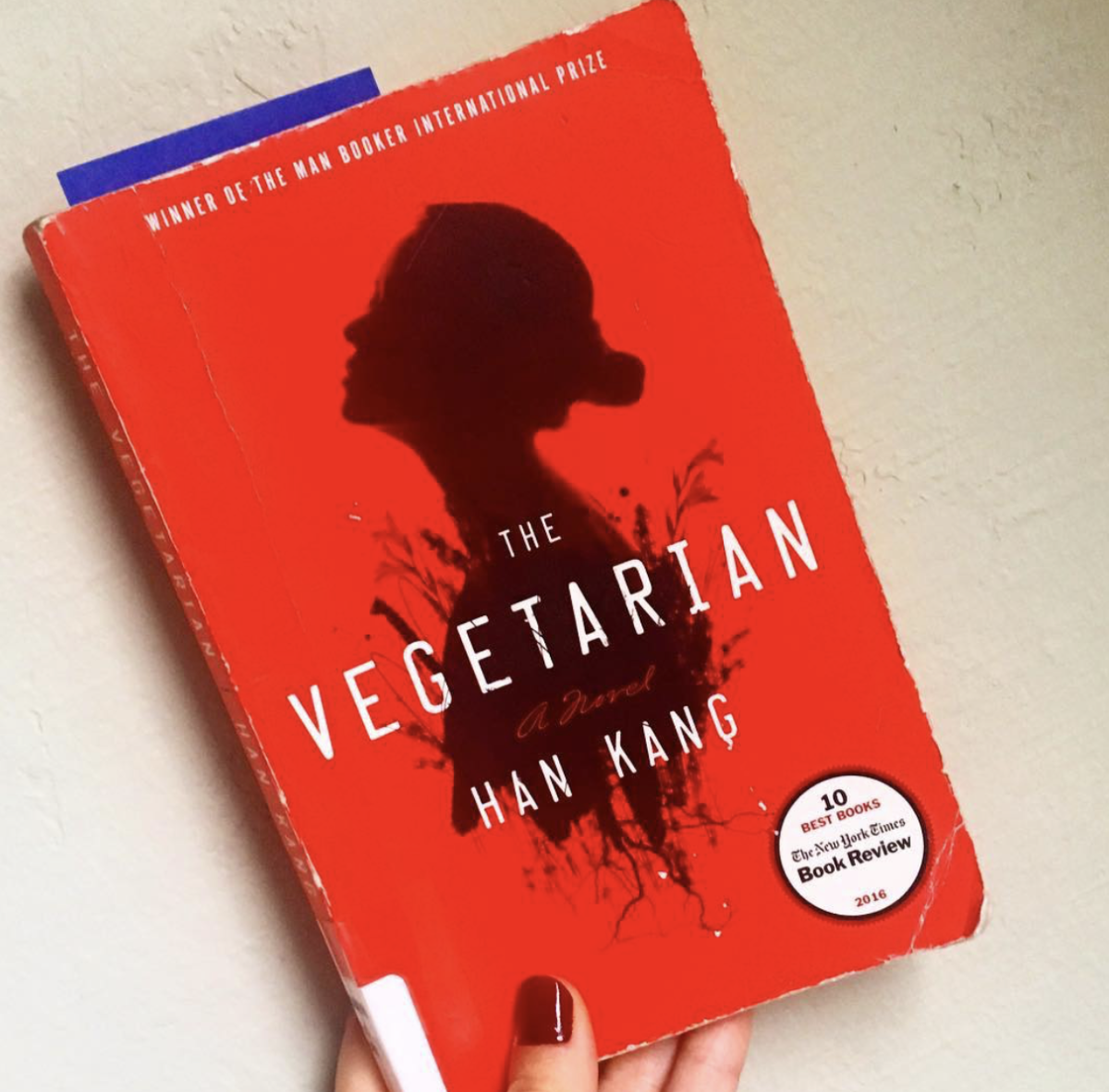“Before my wife turned vegetarian, I’d always thought of her as completely unremarkable in every way.” With this benign line begins “The Vegetarian,” Han King’s 2007 debut novel and now winner of the 2024 Nobel Prize, making King the first South Korean winner. “The Vegetarian” also previously won the Man Booker International Prize after Deborah Smith translated it into English in 2016.
The book’s anodyne title and bright crimson cover with the black silhouette of a woman sprouting flowers from her chest caught my attention on the bookshelf, conflicting messages that pointed to something deeper and darker beneath the surface. What begins as a seemingly innocuous choice — to become vegetarian because of a dream — spirals into a fundamental breakdown of South Korean homemaker Yeong-hye’s personhood and an attempt to return to the roots of her humanity. In her dream, she sees her face reflected in a pool of blood, and she cannot bear what she sees.
King’s experiences as a South Korean woman and her humanistic insight allow her to display the suffering and fragility delicately contained in modern life through a heart-wrenching narrative. The novel passes through three sections, as one would pass through different phases of life, told in the third person. Each section follows a different character and demonstrates how Yeong-hye’s choice sends ripples through their lives.
First, her husband’s baffled irritation and inability to get through to her leads .


















